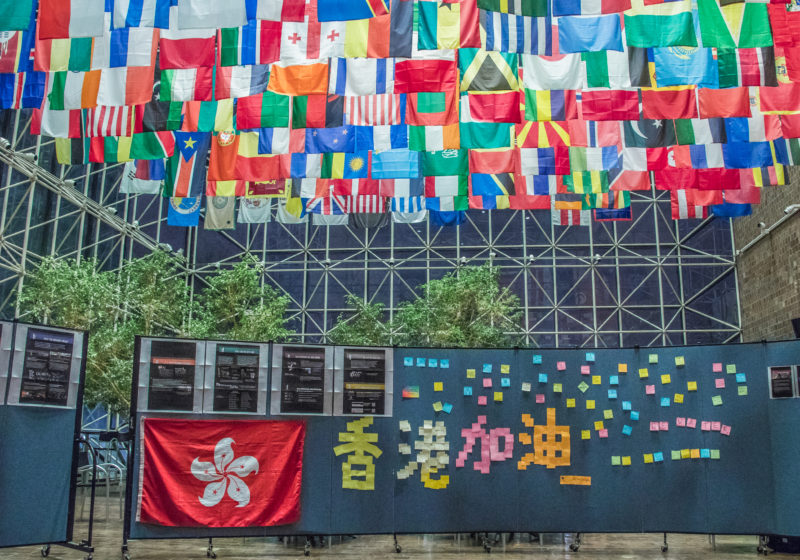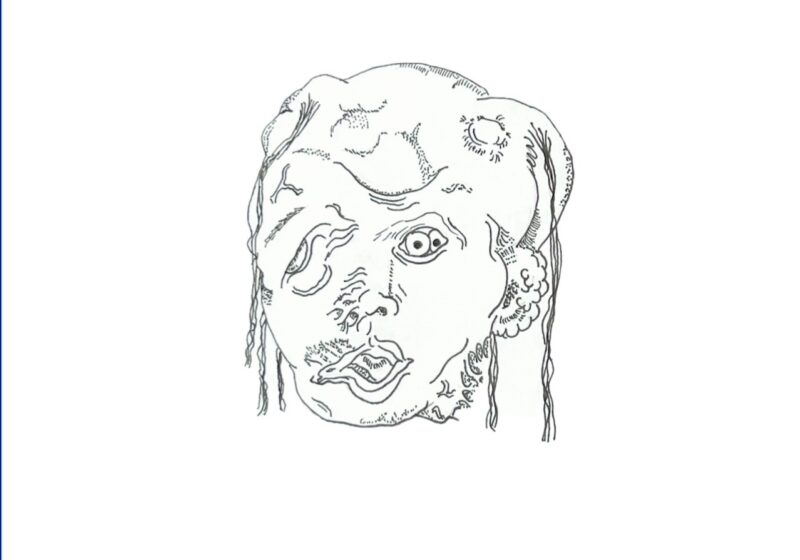On Monday, a crowd of students gathered in Hirst Lounge to learn about and put up Post-its in support of Hong Kong’s protest movement.
The event, organized by the Hong Kong Students Association (HKSA), was intended to reframe the on-campus conversation around Hong Kong, particularly after the recent tunnel painting controversy.
Among the paintings in the tunnel were some in support of Hong Kong’s protesters, including messages in Cantonese, and phrases used by protesters.
HKSA president and junior Selina Xu expressed a wish to educate UR students on what is actually happening in Hong Kong.
“We felt like the school community didn’t really fully understand the message behind it,” she said, “so we decided to actually come up with this event, to help de-escalate the tension a little bit.”
Xu said that many students who saw phrases like “Free Hong Kong” thought that Hong Kong wanted complete independence from China, but this is not the case.
“It’s not sovereignty; it’s our autonomy,” HKSA member and senior Ryan Chui said.
“There’s also a bit of ambiguity when it comes to mentioning the term ‘freedom,’” Chui later added, “because I feel like people also have different conceptions of what freedom means. […] By freedom, we meant what’s promised to us: one country, two systems.”
That refers to the agreement brokered when China regained control over Hong Kong after it had previously been under the control of Britain. According to The Economist, the deal was that Hong Kong would retain its governmental structure, but governors would be replaced by chief executives, who would be elected by a Hong Kong electoral college and approved by the Chinese government.
According to The New York Times, Hong Kongers have recently felt threatened by actions taken by the Chinese government, including allowing police from mainland China to patrol in part of a train station connecting Hong Kong to China, a draft law punishing disrespect of the Chinese national anthem, and bookstores no longer selling publications critical of the government in Beijing that controls Hong Kong.
“I don’t deny that I’m Chinese, but I want to clarify that what we’re striving for is not to break free from China. What we’re striving for is just some semblance of freedom of speech, and a judicial system that we have trust in,” Chui said.
Chui also said that the use of the Hong Kong flag during the event was not meant to imply that Hong Kong is entirely separate from China, but is instead used as a marker of a Hong Kong identity.
“On National Day, we still hoist the Chinese flag above the Hong Kong flag. It’s courtesy; it’s also genuine. But when it’s a Hong Kong matter, we want to be able to present the Hong Kong flag,” he said.
Chui said that in hosting this event, HKSA wanted to have a chance to explain the Hong Kong protests specifically, which they felt had not been able to receive enough attention due to the other important topics the wall discussed.
“Our home is literally burning,” he later added, “and we want to be able to tell that story and make sure it doesn’t get overshadowed by everything else that’s going on.”
The event consisted of two parts. The first was an infographic, meant to provide clarity on the tunnel messages. It explained the significance of cultural and political Cantonese phrases like “Be Water,” which the infographic says “has been adopted by many of the protesters to describe the essence of this leaderless movement — protesters move like water and adapt to whatever changing circumstances they are in.”
The second was a replication of the Lennon Walls in Hong Kong, which is itself based on a Lennon Wall in Prague. The wall in Prague is covered in graffiti espousing values of “freedom and anti-oppression,” according to the infographic. The walls in Hong Kong are similar, except instead of graffiti, they’re covered in Post-it notes.
The Lennon Wall set up in Hirst Lounge was filled with messages in support of Hong Kong. Next to the messages hung a Hong Kong flag.
“We the protestors are everywhere,” said a Post-it in Mandarin Chinese.
“Be strong in the face of adversity and oppression,” said one in Spanish, while another, in English, read “Onward.”
Xu and Chui both expressed hope that the event would push the campus toward conversation.
“It’s about being understanding and being willing to take that extra step to hear their perspective,” said Chui.
Xu said she felt the tension of previous weeks is slowly dying down, and that she was glad to see a dialogue appear as a result of the paintings.
“Whenever I would walk down the tunnel, I would hear people having interesting discussions about, ‘Oh, what’s actually on the walls?’ And they would talk about, ‘So, what are those events happening in the world?’”





